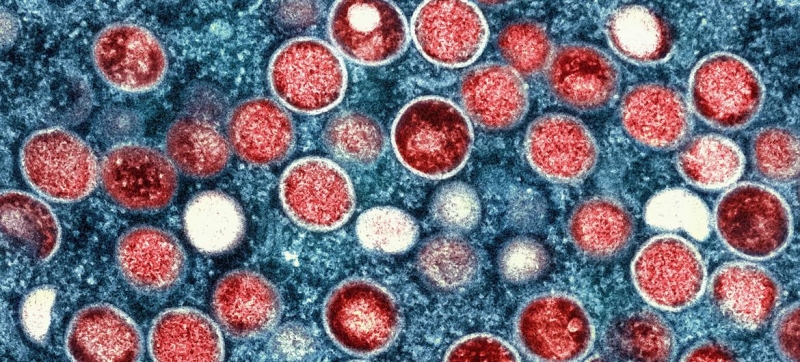
Monkeypox virus (red) inside an infected cell (blue). UNICEF asks for $58.8 million to stop monkey outbreak in Africa Health
The United Nations Children’s Fund (UNICEF) has launched an urgent appeal for nearly $59 million to support efforts to prevent the rapid spread of monkeypox in six African countries, including Burundi, where children are suffering the most.
“Of the nearly 600 cases reported [in Burundi], two-thirds are children under 19 years of age, and the situation is rapidly deteriorating, with cases increasing by more than 40 per cent in the last three weeks,” said Dr Paul Ngwakum, UNICEF’s regional health adviser for East and Southern Africa.
To date, Burundi has registered more than 14,000 suspected cases but no deaths. Neighboring Democratic Republic of Congo has recorded almost 22,000 suspected cases and 717 deaths.
UNICEF’s representative stressed that with funding and swift action, Burundi has the potential to end the current outbreak very quickly, since the disease is limited in geographic area.
Creating safe classrooms
The school year started in Burundi earlier this week. To help teachers and parents understand the risks and minimise the impact of the outbreak, UNICEF is supporting the country’s education authorities to implement school hygiene measures, train staff to recognise the early symptoms of monkeypox and strengthen hand hygiene.
Make no mistake: we don’t have all the answers. No one does right now…
“Make no mistake: we don’t have all the answers. No one does right now,” Dr Ngwakum said. “This is a rapidly evolving situation with a new, contagious strain, and we are learning more and more about how the virus is being transmitted every day. As new information becomes available, we update our recommendations and plan our response.”
Stigma
UNICEF also plans to provide psychological support to parents and frontline health workers, who may face hostility from some communities: monkeypox infection is often associated with sex, which is indeed the cause of transmission in some cases, but not all, health workers warn.
If people find out someone has a sexually transmitted disease, that person is often stigmatized
“In Africa, sex is not a topic of discussion. If people find out someone has a sexually transmitted disease, that person is often stigmatized,” explains Dr Ngwakum. “We are trying to explain that there are misconceptions. Most children become infected through casual contact with animals or contaminated materials, which has nothing to do with human-to-human sexual transmission.”
Comparing Mortality Statistics
Speaking of the stark contrast between the high number of suspected monkeypox deaths in the DRC and the lack of such incidents in Burundi, Dr Margaret Harris of the World Health Organization (WHO) explained that this was likely due to the long-term humanitarian emergency in eastern DRC.
“Many of the children who have died from infection in the Democratic Republic of Congo were severely immunocompromised by chronic malnutrition due to conflict, and possibly also by underlying health conditions,” Dr Harris said, speaking at Geneva.
